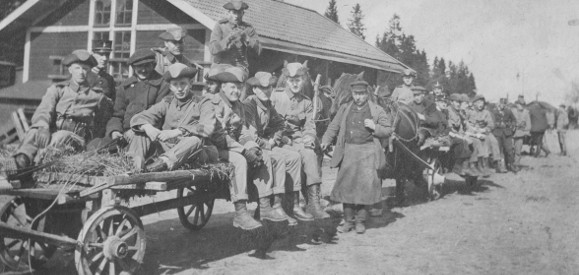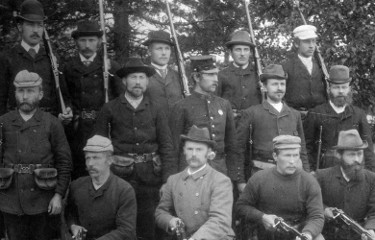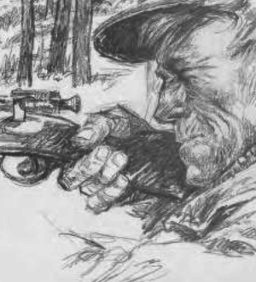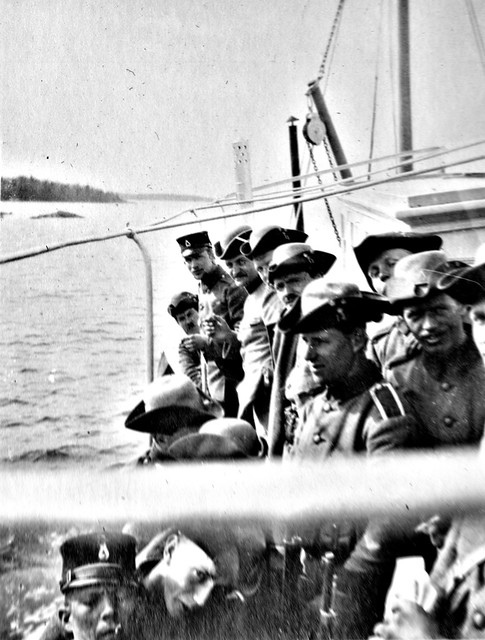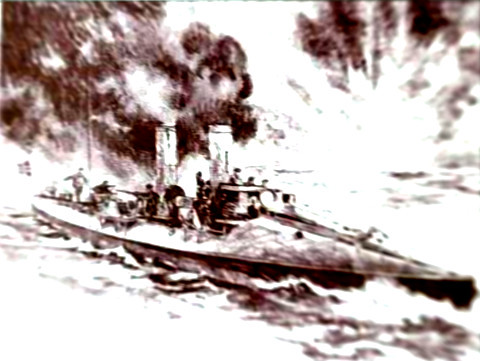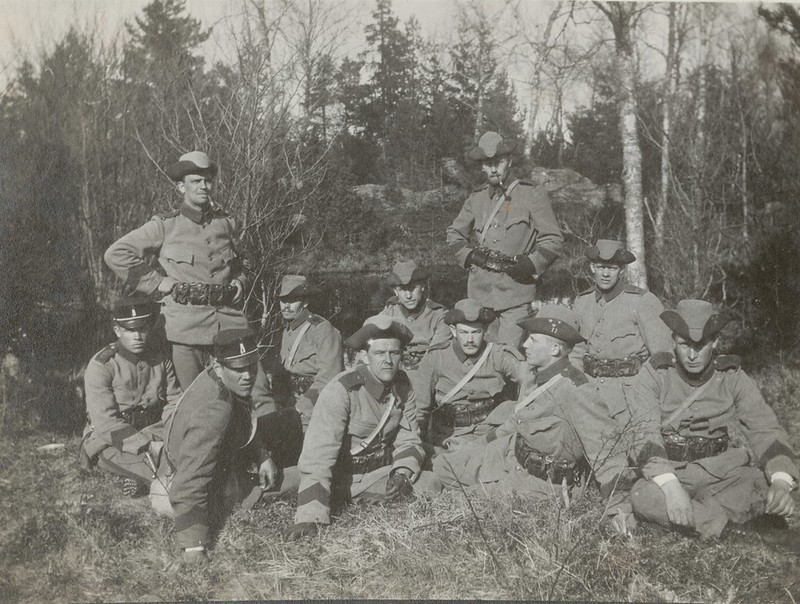Chapter 102: Field communications
Fratricide, Part III: "Mr. Watson, come here – I want to see you."
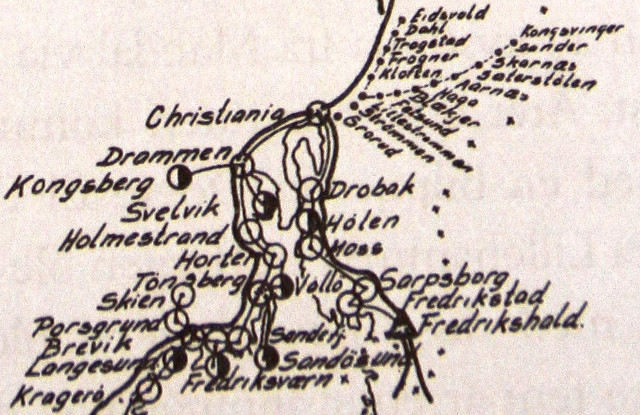
One of the most determining features of the war in Scandinavia was the impact of new communication technology that was for the first time widely used by both warring sides. Ever since the Second Schleswig War, the Union had employed Danish experts to develop their communication systems.The Norwegian telegraph network was already quite extensive, as the seafaring nation had eagerly utilized the new benefits offered by swift new communication networks between various harbours at home and overseas.
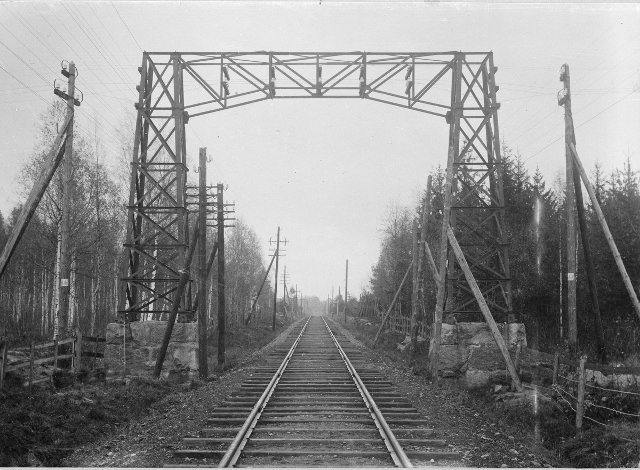
Railroads and telegraph poles had spread to the country hand-in-hand, and by 1905 they connected the southern parts of the country to a web where information and material could be transported back and forth with the same speed that had already shocked the world during the Franco-Prussian War.
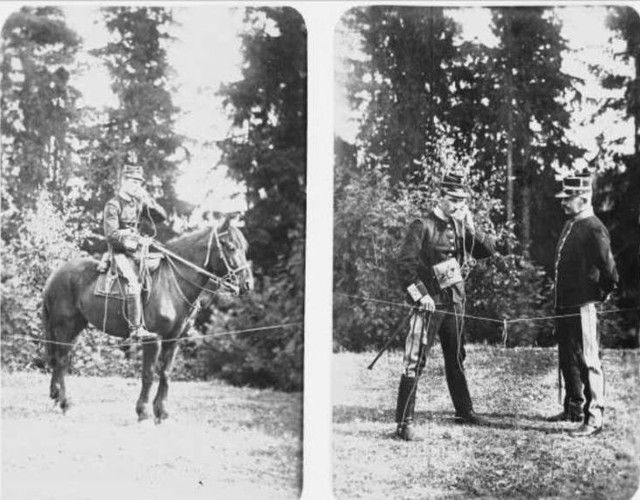
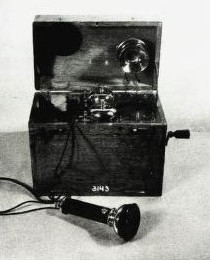
The Norwegian Ingeniørbrigaden had received their first field telegraphs already in 1873, and field phones followed suit by the end of the century, when a prototype developed by cavalry officer Oscar Dahl formed a basis that a Norwegian company N. Jacobsens Elektriske Verksted, further developed into the first field telephone for the Norwegian cavalry in 1897. “Dahl’s apparatus” was a simple, reliable system. The device consisted of two modules, a voice box and ring box.
By 1903 the Norwegian infantry had followed suit and adopted the same field phone for service, as current Defence Minister Thomas T. Heftye had strongly insisted. An Engineer captain, Heftye served as the Telegrafdirektør, the chief of the Norwegian state telegraph company, when the war begun. He and his colleagues had formed an influential lobby group of young technocratic officers, who had joined forces at the Ingeniørofficerenes Forening (Association of Engineer Officers), helping one another to take over the Old Guard in the military and providing funding for unorthodox new projects and technologies.
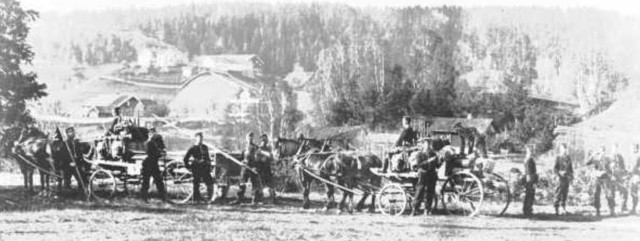
Norwegian signalmen setting up field telephone lines in autumn 1905.
When combined with the good telegraph line network, the field telephones gave the Norwegian generals an unprecedentedly quick way to receive news from the frontlines and issue orders to their troops. But like all curious and ambitious engineers, the Norwegian signal officers had not been sitting idly in the face of the quick technological development that was taking place in the world in the last decades of the 19th century. The pioneers of Norwegian electronic research and industry had gathered to a meeting at Cristiania in 1899 to witness a curious spectacle: premierløytnant Nicolaysen and Jacobsen, the owner of N. Jacobsens Elektriske Verksted, had conducted a succesfull test of "wireless telegraphing based on the Marconi system." Vice-chairman of Ingeniørofficerenes Forening, Johan Ræder, had been impressed enough to install an experimental signal station to his current command post at Kongsvinger fortress during his tenure there in 1903.
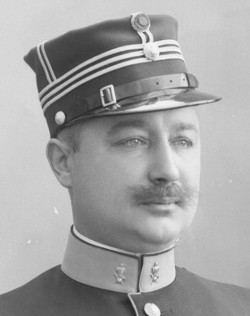
Telegrafdirektør Heftye was adamant in his belief that in order to prevail, the Norwegian forces would have to utilize every possible advantage they had. Yet he and his colleaques, as far-sighted as they had been, had no means to truly comprehend the amount of telephone and telegram traffic the beginning of hostilities would entertail. The lack of coherent prewar plans of any kind was one thing, but the lack of coordinated messaging doctrine initially made many generals despair as the phones just kept ringing, vital messages could not be relayed in time as some insignificant details were debated over the phone. Information paralysis threatened to overwhelm the Norwegian military leadership, and the relay stations lacked enough experienced staff to meet the unexpectedly large volume of telephone traffic. During the first week of the conflict, it seemed that an idea that had seemed so brilliant in theory would be a dismal failure in real life.
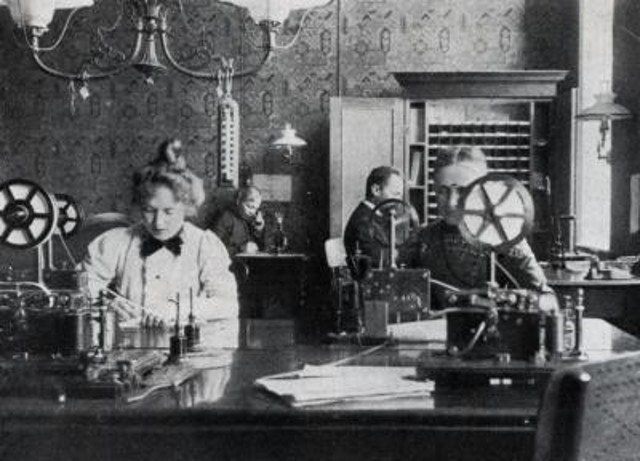
Then Heftye realized that he already had a professional reserve cadre who had more than ample experience of dealing with such situations. Most of the civilian staff of the Norwegian telegraph and phone companies were women. As early as 1882, it had been a requirement for the central board ladies that they had to be able to learn six hundred names by heart. After Heftye made some quick reorganizations, the panicked calls from the frontline would no longer be answered by equally stressed young signal conscripts at the relay stations, but by the same calm, no-nonsense female voice many of the officers had learned to know from their civilian life. The arrival of "Sentralsandras" enabled the Norwegian military leadership to finally begin to control and properly utilize their new command system, and by the time the Swedish invasion had reached Kongsvinger, the defending garrison was able to hold primarily because the commanders could use the field phone network to rush the reserves around as necessary.
All the technological information is as per OTL.
Last edited:
